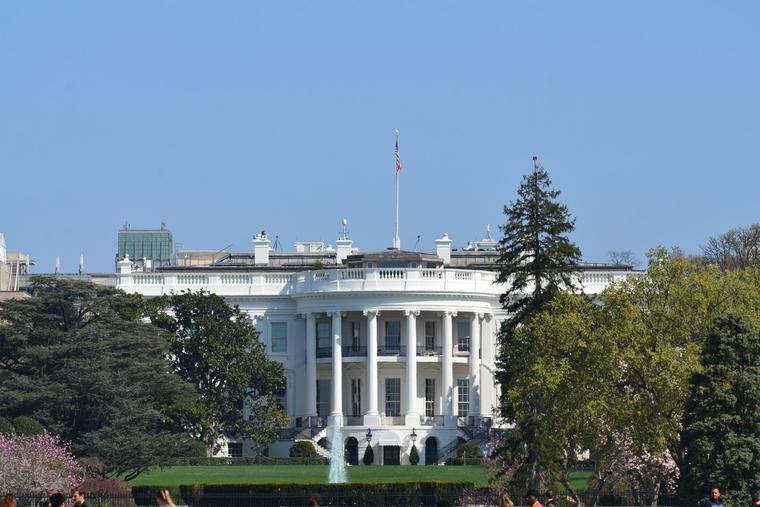White House Won’t Say if Unborn Child Is Human Being at 15 Weeks
The White House press secretary would not directly answer the question about an unborn child, and the White House on Monday also would not comment specifically on President Joe Biden and reception of Communion.

WASHINGTON — The White House on Monday would not comment specifically on President Joe Biden and reception of Communion and would not answer if a 15-week-old unborn child is a human being. House Speaker Nancy Pelosi was asked the same question about the unborn last week.
When asked by a reporter at Monday’s press briefing if Biden believes that a 15-week-old unborn baby is a human being, White House Press Secretary Jen Psaki would not directly answer the question.
“Are you asking me if the president supports a woman’s right to choose? He does,” Psaki said. The Supreme Court is scheduled to hear arguments this fall in a pivotal abortion case on Mississippi’s ban on most abortions after 15 weeks.
Psaki was also asked about Communion on Monday. A reporter asked her what President Biden’s “reaction” was to a proposed Eucharistic document of the U.S. bishops. Psaki said Biden’s faith was “personal” and would not comment on the document.
Although the bishops moved to begin drafting a teaching document on the Eucharist, which included a subsection on worthiness to receive Communion, certain media reports framed the vote as part of a process to directly rebuke Biden or deny him Communion.
“Well, Joe Biden is a strong man of faith, and as he noted just a couple of days ago, it’s personal,” Psaki said. “He goes to Church, as you know, nearly every weekend. He even went when we were on our overseas trip.”
“But it’s personal to him. He doesn’t see it [faith] through a political prism, and we’re not going to be able to comment otherwise on the inner workings of the Catholic Church,” she added.
Psaki had been asked to respond to the U.S. bishops’ move to begin drafting a teaching document on the Eucharist last week. The reporter referred to it as a document “to clarify who should receive Communion” and one that “is targeted at politicians, people who have a high public profile.”
The U.S. bishops’ doctrine committee, which proposed drafting the document, included a subsection on “Eucharistic consistency” in its proposed outline, and noted the “special call for those Catholics who are cultural, political, or parochial leaders to witness to the faith.”
Communion for pro-abortion Catholic politicians has been a topic of conversation among bishops since Biden’s election.
Canon 915 of the Church’s Code of Canon Law states that Catholics “obstinately persevering in manifest grave sin are not to be admitted to Holy Communion.” Then-Cardinal Joseph Ratzinger, in a 2004 memo on Communion, said that Catholic politicians who are “consistently campaigning and voting for permissive abortion and euthanasia laws” are considered to be formally cooperating in the grave sin of abortion and are doing so in a “manifest,” or public, way.
In such cases, Cardinal Ratzinger said, the pastor of the official must meet with and admonish him or her, instructing the politician to not receive Communion. If the politician persists in pro-abortion advocacy, the minister of Communion “must refuse to distribute it,” he said.
Biden supports taxpayer-funded abortion, has promised to codify Roe v. Wade, and has ordered foreign assistance to once again flow to pro-abortion groups abroad. His local ordinary, Cardinal Wilton Gregory of the Archdiocese of Washington, has said he would not deny Communion to pro-abortion Catholic politicians. Biden’s ordinary in the Diocese of Wilmington, Delaware, Bishop Francis Malooly, has previously said he would not deny Biden Communion.
When the reporter followed up on Monday, asking Psaki if “statements by the bishops” would “make the president reconsider his public support for policies that increase access to abortion,” Psaki repeated her answer that Biden’s faith “is personal.”
“It’s something that has helped guide him through some challenging moments in his life, and that’s how many Americans see their faith as well — not through a political prism,” she said. “So I suspect he will continue to attend church, as he has for many, many years.”
On Friday, Biden was asked about a “resolution” of the U.S. bishops to deny him and other pro-abortion politicians Communion, even though the bishops’ vote last week was to begin drafting a teaching document on the Eucharist, not on any national policy of denying Communion.
Biden said, “That’s a private matter, and I don’t think that is going to happen.”
















